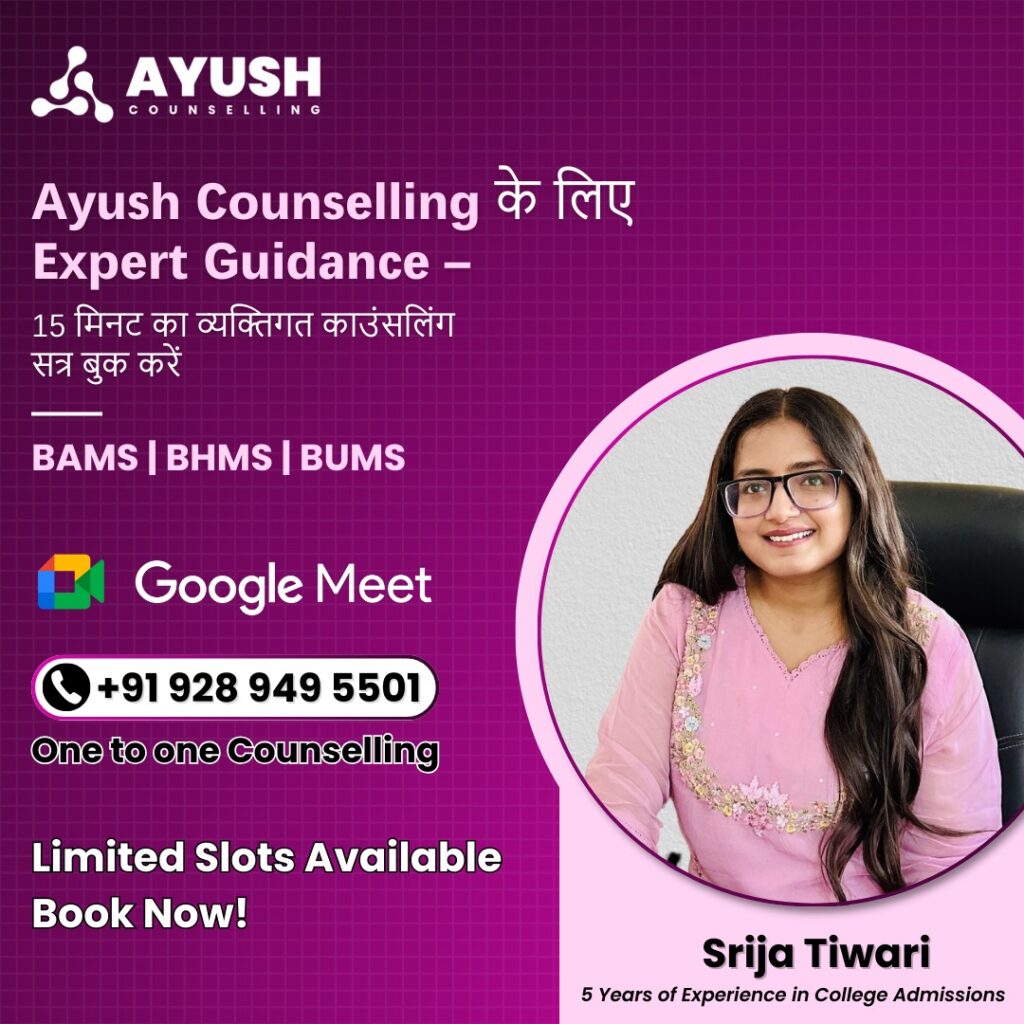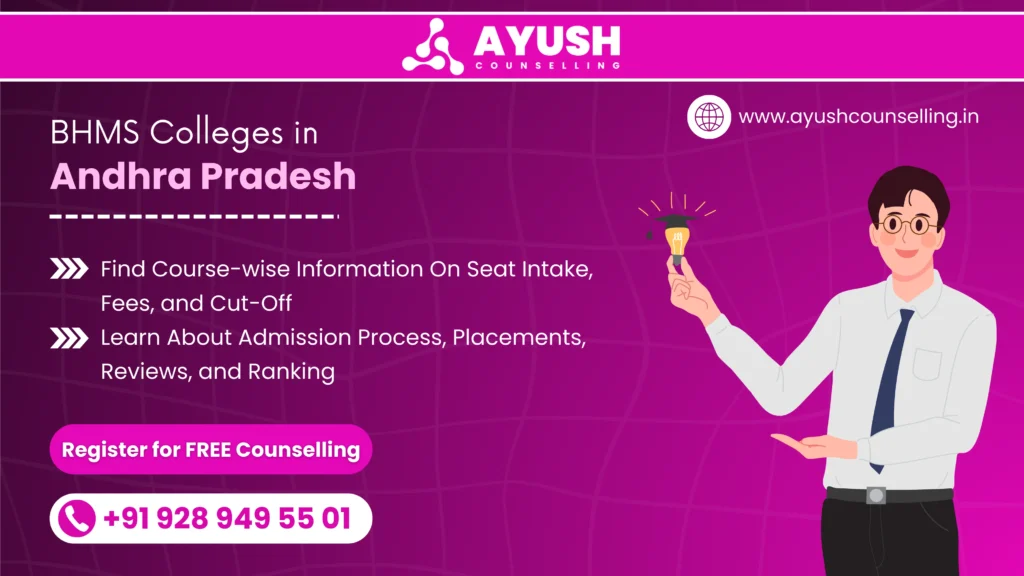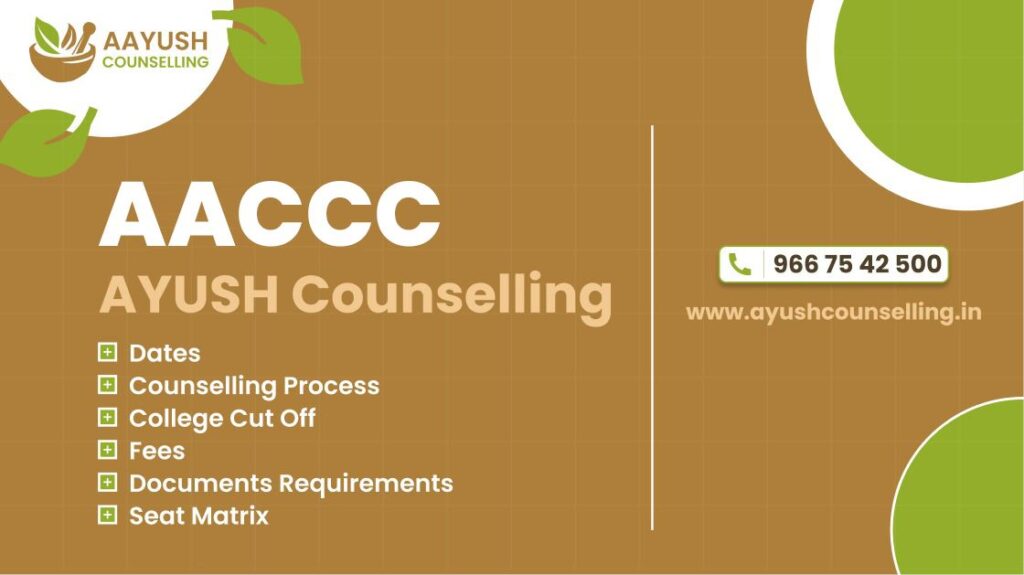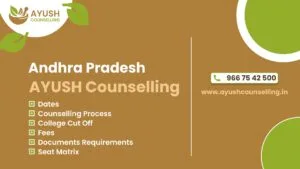BHMS Colleges in Andhra Pradesh stand tall as bastions of holistic healing and alternative medicine in the year 2024. Nestled within the enchanting landscapes of this vibrant Indian state, these esteemed institutions beckon aspiring students to embrace the profound principles of homeopathic medicine and embark on a transformative journey in the realm of natural healthcare.

In a world where personalized treatment and non-invasive therapies are gaining immense popularity, BHMS colleges in Andhra Pradesh offer a unique opportunity to explore the art of homeopathy. With a perfect blend of time-honored wisdom and modern scientific understanding, these colleges are at the forefront of innovation in the field of alternative medicine.

The support of the government and health organizations in Andhra Pradesh ensures that these BHMS colleges continue to evolve, adhering to international standards and embracing research and innovation. As a result, the scope of homeopathy shines brighter than ever, offering diverse career opportunities to graduates.
Whether one envisions establishing a private practice, collaborating in integrated healthcare centers, contributing to public health initiatives, or venturing into research, these colleges in Andhra Pradesh open doors to boundless possibilities.
In the dynamic landscape of healthcare, the BHMS colleges in Andhra Pradesh stand as beacons of hope and healing. Together, they paint a healthier, happier future, where the timeless wisdom of homeopathy converges with the endless possibilities of tomorrow. So, if your heart beats for the art of healing, and your spirit seeks a meaningful path of service, join the journey of BHMS colleges in Andhra Pradesh 2024, where the pursuit of knowledge meets the art of healing.
About Homoeopathy
Homeopathy is a holistic system of alternative medicine that was developed by Samuel Hahnemann, a German physician, in the late 18th century. The core principle of homeopathy is “similia similibus curentur” or “like cures like,” which means that a substance that can cause certain symptoms in a healthy person can be used to treat similar symptoms in a sick person.
The fundamental concept behind homeopathy is to stimulate the body’s innate healing abilities and restore balance, rather than merely suppressing symptoms. Homeopathic remedies are made from natural substances such as plants, minerals, and animal products. These substances undergo a process of dilution and potentization, which involves serial dilution and vigorous shaking to enhance their therapeutic properties while minimizing any potential toxicity.
Key aspects of homeopathy include:
- Individualized Treatment: Homeopathy treats each person as a unique individual with their own set of symptoms and characteristics. Practitioners take into account physical, mental, and emotional aspects of the person to prescribe the most suitable remedy for their specific condition.
- Minimal Dose: Homeopathic remedies are highly diluted, often to the point where they may not contain any molecules of the original substance. This makes them safe and non-toxic, even when used for extended periods.
- Holistic Approach: Homeopathy considers the whole person and aims to address the underlying cause of the illness, rather than treating isolated symptoms. The focus is on restoring overall health and well-being.
- Non-Suppressive Treatment: Homeopathy seeks to work with the body’s natural defense mechanisms to promote healing, rather than suppressing symptoms. It is believed that symptoms are expressions of the body’s attempt to restore balance.
- Safety: Homeopathic remedies are generally safe to use, with minimal risk of side effects or drug interactions. They are suitable for people of all ages, including pregnant women and infants.
Homoeopathy as a Career
homoeopathy as a career offers a rewarding and fulfilling path for those who have a passion for holistic healing and a desire to help others achieve well-being. As a system of alternative medicine, homeopathy presents a unique approach to healthcare that appeals to individuals seeking natural and personalized treatment options. Here are some key aspects of homoeopathy as a career:
- Personalized Patient Care: Homoeopathy focuses on individualized treatment, considering not only physical symptoms but also the mental and emotional aspects of the patient. Practitioners spend time understanding the patient’s unique health profile, enabling them to offer tailored remedies and compassionate care.
- Holistic Approach: As a homoeopathic practitioner, you will address the entire person, aiming to identify and treat the root cause of illness, rather than just alleviating symptoms. This holistic approach emphasizes overall well-being and long-term health improvement.
- Patient Satisfaction: Homoeopathy often resonates with patients who seek natural and non-invasive therapies. By providing gentle and safe treatments, homoeopathic practitioners often witness high levels of patient satisfaction and gratitude.
- Diverse Career Opportunities: Homoeopathy offers a range of career paths. Graduates can establish their private practice, work in homoeopathic clinics and hospitals, collaborate in integrative medicine centers, contribute to public health initiatives, or engage in research and academics.
- Continuous Learning: As in any medical field, homoeopathy requires a commitment to lifelong learning. Research and new developments in the field offer opportunities for practitioners to expand their knowledge and stay updated with the latest advancements.
- Flexibility and Independence: Homoeopathy allows for flexibility in practice, enabling practitioners to set their working hours and choose their areas of specialization. This independence can lead to a fulfilling work-life balance.
- Global Demand: Homoeopathy has a strong presence worldwide, providing practitioners with the potential to practice in various countries and cultures, catering to diverse patient populations.
- Integrative Medicine: The growing trend of integrative medicine creates opportunities for homoeopathic practitioners to collaborate with allopathic and other alternative medicine professionals, offering comprehensive and well-rounded healthcare options.
Highlights
Check the summary overview of Homeopathic.
| Particular | Undergraduate | Postgraduate |
| Course Name | BHMS | MD/MS |
| Course Level | Graduate (UG) | Postgraduate |
| Duration | 5.5 Years (Including 1-year internship) | 3 Years |
| Stream | Medical Sciences | Specialization after BHMS |
| Eligibility | 10+2 with P.C.B. as main subjects | BHMS from a recognized University |
List of Homeopathic College in Andhra Pradesh
Here is the list of Homeopathic colleges in Andhra Pradesh.
| S.No. | Name of Colleges | Establishment Year | Affiliated with | Aided |
| 1 | A.S.R. Homoeopathic Medical College, Tadepalligudem | 2019 | NTR University of Health Sciences Vijayawada | Private |
| 2 | Dr. Allu Ramalingaiah Govt. Homoeopathic Medical College, East Godavari | 1969 | NTR University of Health Sciences Vijayawada | Govt. |
| 3 | Dr. Gururaju Govt. Homoeopathic Medical College, Gudivada | 1945 | NTR University of Health Sciences Vijayawada | Govt. |
| 4 | Govt. Homoeopathic Medical College, Kadapa | 1982 | NTR University of Health Sciences Vijayawada | Govt. |
| 5 | KKC Homoeopathic Medical College, Chittoor | 2019 | NTR University of Health Sciences Vijayawada | Private |
| 6 | Maharajaha Institute of Homoeopathy Sciences and Hospital, Vizianagaram | 2007 | NTR University of Health Sciences Vijayawada | Private |
| 7 | Sri Adi Shiva Satguru Ali Saheb Shivaaryula Homoeopathic Medical College, Anantapur | 2017 | NTR University of Health Sciences Vijayawada | Private |
NEET Cutoff 2024
NEET AYUSH Cut Off is the minimum qualifying score that aspiring candidates need to achieve in the National Eligibility cum Entrance Test (NEET) to secure admission in AYUSH (Ayurveda, Yoga and Naturopathy, Unani, Siddha, and Homeopathy) courses.
The cut-off is determined by the regulatory authorities and varies each year based on factors such as the number of applicants and the difficulty level of the exam. It serves as a benchmark for selecting candidates for AYUSH undergraduate and postgraduate programs in various colleges and universities across India. Meeting the NEET AYUSH cut-off is essential for aspiring students to pursue their dreams of studying AYUSH disciplines and embarking on a career in alternative medicine.
NEET UG Cutoff 2024
| Category | Cut-Off Percentile | NEET Cut-Off 2023 | NEET Cut-Off 2024 | No. Of Candidates |
| UR/EWS | 50th Percentile | 720-137 | 720-164 | 1165904 |
| OBC | 40th Percentile | 136-107 | 163-129 | 100769 |
| SC | 40th Percentile | 136-107 | 163-129 | 34326 |
| ST | 40th Percentile | 136-107 | 163-129 | 14478 |
| UR/EWS-PwD | 45th Percentile | 136-121 | 163-146 | 455 |
| OBC-PwD | 40th Percentile | 120-107 | 145-129 | 270 |
| SC-PwD | 40th Percentile | 120-107 | 145-129 | 55 |
| ST-PwD | 40th Percentile | 120-107 | 141-129 | 11 |
BHMS College in India – Admission Process
AYUSH UG counselling refers to the counseling process for undergraduate programs in the field of Ayurveda, Yoga & Naturopathy, Unani, Siddha, and Homeopathy. These programs are collectively known as AYUSH courses and are offered by various colleges and universities in India. The counselling process for AYUSH UG courses is conducted by the respective state and central counseling authorities (AACCC).
The online counselling for the allocation of 15% All India Quota Seats in Undergraduate (BAMS/BUMS/BSMS/BHMS) courses at Government/Government-aided Ayurveda/Siddha/Unani/Homoeopathy Colleges, Deemed Universities (100%), Central Universities/National Institutes is being conducted by the AYUSH Admissions Central Counseling Committee (AACCC) under the Ministry of AYUSH, Government of India. On the other hand, candidates seeking admission through the 85% state quota for AYUSH courses should apply to the respective state counselling authorities.
- AACCC – UG Counselling
- 15% All India Quota UG (BAMS/BUMS/BSMS/BHMS) seats under Govt./Govt. aided institute of all States/ Union Territories.
- 100% UG (BAMS/BUMS/BSMS/BHMS) seats under National/ Central Institutes.
- 100% UG (BAMS) seats under Banaras Hindu University, Varanasi, Uttar Pradesh.
- 50% BUMS seats of AMU, Aligarh, Uttar Pradesh.
- 50% BAMS & BHMS seats of NEIA&H, Shilong, Meghalaya.
- 100% UG (BAMS/BUMS/BSMS/BHMS) seats of all Deemed Universities.
- 100% UG seats (15% All India Quota + 85% Delhi Quota) of ASU & H Institutes under Delhi University as per eligibility conditions provided by the University.
Registration Process
Step 1: Visit the official website. (AACCC)
Step 2: Click on the registration link.
Step 3: Fill in personal details.
Step 4: Enter academic qualifications.
Step 5: Upload the required documents.
Step 6: Pay the registration fee online.
Step 7: Submit the form.
Step 8: Receive confirmation or acknowledgement.
Counselling Process

Round 1: Eligibility for Participation
Only NEET (UG) – 2024 qualified candidates are eligible for AACCC-UG Counseling.
Process:
- Register for AACCC-UG Counseling.
- Pay the Counselling Fee (Non-Refundable Registration Fee + Security Deposit Money).
- Fill in and lock your choices.
- The seat allotment list will be published (result).
- Physically report to the allotted college.
Round 2: Eligibility for Participation
- NEET (UG)-2024 qualified candidates who have not registered in the 1st Round.
- Candidates registered in the 1st Round but were not allotted a seat.
- Candidates who opted for free exit in the 1st Round.
- Candidates who joined the allotted seat in the 1st Round and submitted willingness for up-gradation in the 2nd Round.
Process:
- Register for AACCC-UG Counseling (Candidates from the 1st Round need not register again).
- Pay the Counseling Fee (Non-Refundable Registration Fee + Security Money) if not paid already.
- Fill in and lock your choices.
- The seat allotment list will be published (result).
- Physically report to the allotted college.
Round 3/Mop-up Round: Eligibility for Participation
- NEET (UG)-2024 qualified candidates who have not registered in the 1st Round & 2nd Round.
- Candidates who have already registered but were not allotted seats in the 1st Round & 2nd Round.
- Candidates registered in Round 1/Round 2 and availed of Free Exit.
- Candidates who joined the 1st Round were allotted seats and submitted willingness for upgradation but did not participate in the 2nd Round of counseling.
- Candidates who joined the allotted seat in the 2nd Round and submitted willingness for up-gradation in the AACCC counseling 3rd Round.
- Candidates who leave/resign the allotted seat in the 2nd Round, with forfeiture of Security money, three days before the commencement of the 3rd Round can participate with payment of complete fees.
Process:
- Register for AACCC-UG Counseling (Candidates from the 1st Round/2nd Round need not register again).
- Pay the Counseling Fee (non-refundable Registration Fee and Security Money if not paid already).
- Fill in and lock your choices.
- The seat allotment list will be published (result).
- Physically report to the allotted college.
Stray Vacancy Round for AIQG/AIQGA/CU/NI
- Seats that remain vacant after the 3rd/Mop-up Round will be filled through the AACCC’s online Stray Vacancy Round.
- Eligibility for Participation:
- All registered candidates were not admitted to any seats through AACCC-UG counseling or state/UT counseling.
Process:
- No fresh registration in the Stray Vacancy Round.
- Submit willingness in the AACCC-UG portal to participate in the Stray Vacancy Round with an undertaking that you do not hold any UG (ASU&H) seats allotted through AACCC-UG counseling or counseling conducted by State/UTs.
- Option for choice filling is available.
- No upgrade is available from the 3rd/Mop-up Round to the Stray Vacancy Round.
Stray Vacancy Round for Deemed University
- The respective Deemed Universities conduct the Stray Vacancy Round for seat allotment under Deemed Universities.
- AACCC will send a list of eligible registered candidates to Deemed Universities for the Stray Vacancy Round, which will be exercised strictly in order of merit.
- The seats are domicile-free, and only registered AACCC-UG counseling candidates are eligible for admission.
Please note that the process provided is a simplified overview of the AACCC Counselling process. It is recommended to refer to the official AACCC website or relevant sources for more detailed and up-to-date information.
Documents Required
- Admit Card
- Scorecard or Rank Letter
- Class 10 certificate and mark sheet (for date of birth)
- Class 12 certificate and mark sheet
- ID proof (Aadhar/PAN Card/Driving License/Passport)
- Eight passport-size photographs
- Provisional Allotment Letter
- Caste Certificate (if applicable)
- PwD Certificate (if applicable)
Andhra Pradesh AYUSH Counselling Process

Counseling Registrations
Step 1: Go to the official website designated for Andhra Pradesh Ayush NEET Counseling.
Step 2: Register online by providing your personal details and creating a unique registration ID and password.
Step 3: Visit the document verification centre as per the announced schedule and get your original documents verified.
Step 4: Check the merit list on the official website to see if your name is listed.
Step 6: Log in to the counseling portal using your registration ID and password.
Step 7: Fill in your preferred choices of AYUSH colleges and courses based on your priority.
Step 8: The authorities will conduct seat allotment rounds based on merit, preferences, and seat availability.
Step 9: Check the seat allotment result on the official website using your login credentials.
Counselling Process
Step 1: Registration
- Visit the official website for Andhra Pradesh Ayush NEET Counseling.
- Register online by providing your personal details and creating a unique registration ID and password.
Step 2: Document Verification
- Attend the document verification process at the designated centre.
- Carry all the necessary documents, including NEET scorecard, mark sheets, certificates, and identity proof.
- Get your original documents verified and collect the verification slip.
Step 3: Merit List
- Check the official website for the released merit list.
- Look for your name and NEET score in the merit list.
Step 4: Choice Filling
- Log in to the counseling portal using your registration ID and password.
- Fill in your preferred choices of AYUSH colleges and courses based on your priority.
Step 5: Seat Allotment
- The authorities will conduct multiple rounds of seat allotment based on merit, preferences, and availability of seats.
- Check the seat allotment result on the official website using your login credentials.
- If you are allotted a seat, proceed to the next step.
Step 6: Reporting to Allotted College
- Report to the allotted college within the specified timeframe.
- Carry the required documents, including the allotment letter and other specified documents.
- Complete the admission formalities and pay the admission fee to confirm your seat.
It is important to regularly check the official website and follow the instructions provided by the authorities at each step of the counseling process. Keep track of the important dates, document requirements, and any updates or notifications issued by the counseling authority.
Application Fee (Category Wise):
The fee can be paid with a debit/credit card or by using Net Banking.
| Category | Non- Refunded Fee |
| UR | Rs. 2360/-(2000/-+360/- GST 18%) + (Bank transaction charges extra) |
| OC & BC | Rs. 3,540/- (Registration and Processing fee of 3540/- (Rs. 3,000/- + Rs.540/- GST @ 18%) Bank Charges Extra |
| SC & ST | Rs.2,950/- (Registration and Processing fee of 2950/- (Rs. 2,500/- + Rs.450/- GST @ 18%) Bank Charges Extra |
Documents Required
Original documents (along with self-attested photocopies of documents) required at the time of joining in allotted Ayurveda/Unani/Siddha/Homoeopathy College for admission to 15% of total seats on All-India basis are as follows.
- Admit Card
- Scorecard or Rank Letter
- Class 10 certificate and mark sheet (for date of birth)
- Class 12 certificate and mark sheet
- ID proof (Aadhar/PAN Card/Driving License/Passport)
- Eight passport-size photographs
- Provisional Allotment Letter
- Caste Certificate (if applicable)
- PwD Certificate (if applicable)
Frequently Asked Questions
What is the full form of BHMS?
The full form of BHMS is a Bachelor in Homeopathic Medicine and Surgery.
Can I get into a BHMS college in Andhra Pradesh without taking the NEET?
No, admission to Andhra Pradesh’s government and private colleges is not possible without passing the NEET exam.
How many Government BHMS Colleges are in Andhra Pradesh?
There are 3 Government BHMS colleges in Andhra Pradesh.
Can I enroll in a BHMS programme with 200 NEET points?
Based on previous years’ cutoffs, 200 marks are insufficient to get into a government-run BHMS medical school; you should aim for 400–450 in the NEET entrance exam.
How much score points needed to get into a B.H.M.S. course?
Your score must be above 350 in order to be admitted to a Government homoeopathy college for the BHMS programme.
How many colleges of bhms are there in Andhra Pradesh?
Andhra Pradesh is home to several colleges that offer a variety of professional degrees, diplomas, and specialized training. More specifically, there are over 7 colleges in Andhra Pradesh that offer a professional bhms-bachelor of homoeopathic medicine and surgery course/degree.
What is the duration of Homoeopathy Course?
Homeopathy requires four and a half years of medical college as other regular medical programmes. Additionally, a one-year, rotating internship is required. An All-India Entrance Examination or a regional/state entrance examination is used to fill open seats at BHMS.
